Almonds are a popular nut that can be used in many dishes.
They add flavor, texture, and crunch to whatever you’re making.
But what happens when you don’t have almonds on hand?
Or if someone is allergic to them?
Fear not!
There are plenty of substitutes for almonds that will still give your dish the same flavor, texture, and crunch.
In this article, we’ll take a look at 10 of the best substitutes for almonds so that you can keep cooking all your favorite recipes without missing out on any of the deliciousness.
What Are Almonds?
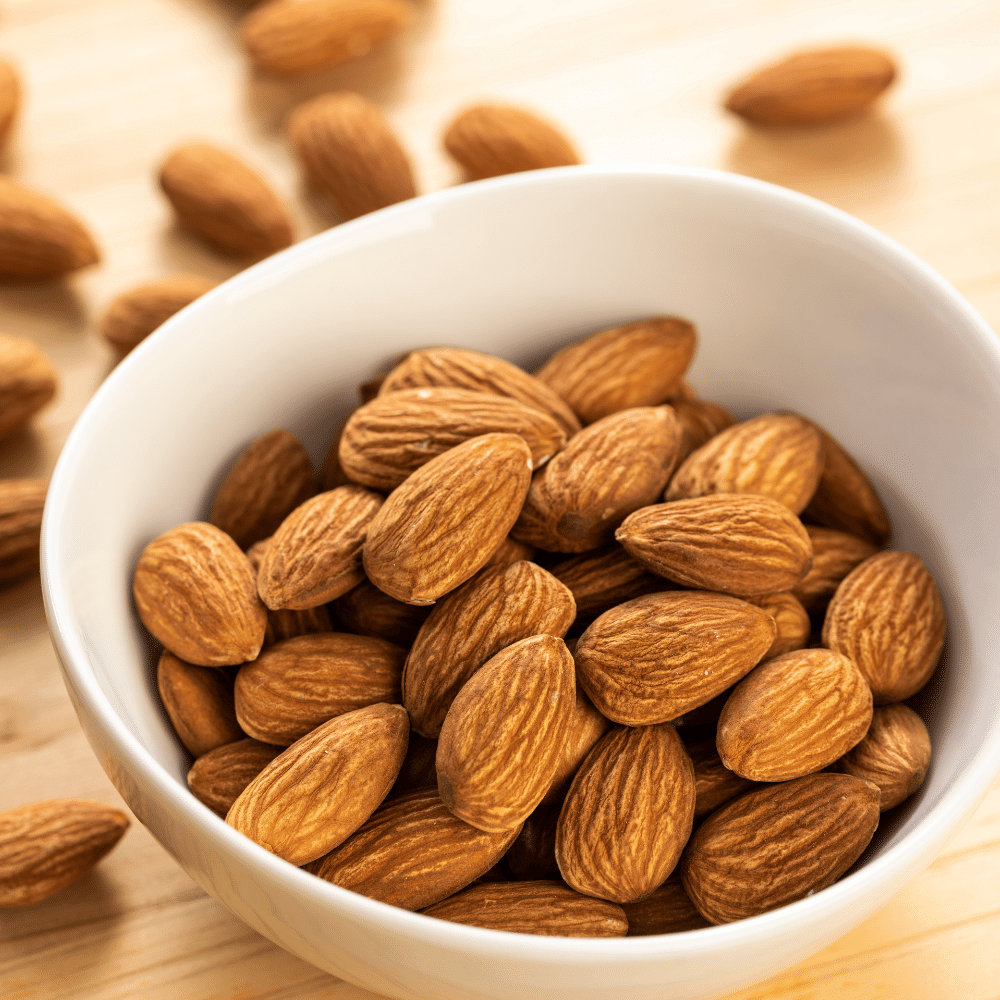
Almonds are a type of tree nut that grows in the Mediterranean region and parts of Asia.
The almond fruit is technically a drupe, which is a type of stone fruit.
It has an outer hull surrounding the edible seed inside, which we commonly refer to as the almond nut.
The seed itself can be eaten raw or cooked, depending on the dish.
Almonds come in two varieties: sweet and bitter.
Sweet almonds are usually sold for eating purposes while bitter almonds are used for extracting oil and flavoring foods like marzipan and amaretto liqueur.
Almond skins can be removed by blanching them briefly in hot water before they’re consumed or used as ingredients in recipes.
The nuts themselves have a crunchy yet creamy texture with a slightly sweet taste that makes them popular additions to salads, baked goods, desserts, and other dishes.
The 10 Best Substitutes For Almonds
Almonds are a great source of healthy fats, but they can be expensive and difficult to find.
Fortunately, there are many substitutes that provide the same nutritional benefits as almonds.
Here we look at ten of the best almond substitutes:
1 – Cashews

Cashews are a delicious and versatile nut that can be used in both sweet and savory dishes.
They have a mild flavor with a slightly sweet taste, making them perfect for adding to salads, stir-fries, curries, and desserts.
Cashews also provide an excellent source of protein, healthy fats, vitamins, minerals, and antioxidants.
When substituting almonds for cashews in recipes, it’s important to remember that cashews are softer than almonds so they will cook faster.
It is best to add them at the end of cooking or use them as a garnish instead.
Their creamy texture makes them great for blending into sauces or using as an alternative to dairy products like cream cheese or yogurt in vegan dishes.
2 – Pecans

Pecans are a type of nut native to North America, and they have a unique flavor that sets them apart from other nuts.
Their sweet, buttery taste is perfect for baking or adding as a crunchy topping on salads and desserts.
Pecans are also highly nutritious, providing essential vitamins and minerals such as Vitamin E, magnesium, phosphorus, zinc, and iron.
When substituting pecans for almonds in recipes, you may need to adjust the cooking time slightly since pecans tend to be softer than almonds.
Pecans can be used in place of almonds in many dishes like granola bars or trail mix but they also make an excellent addition to pies and cakes due to their natural sweetness.
3 – Walnuts

Walnuts are a delicious and nutritious nut that can be used in many recipes.
They have a distinctive flavor, with a slightly sweet taste that pairs well with savory dishes.
Walnuts are rich in healthy fats, protein, fiber, vitamins, and minerals.
They also contain high levels of antioxidants which may help protect against disease.
When substituting walnuts for almonds in recipes, it’s important to remember that they have different textures – walnuts tend to be softer than almonds when cooked.
Therefore, you may need to adjust the cooking time or add extra liquid if necessary.
Walnuts can be used as an alternative for almond-based dishes such as salads, pesto sauces and desserts like brownies or cakes.
4 – Hazelnuts
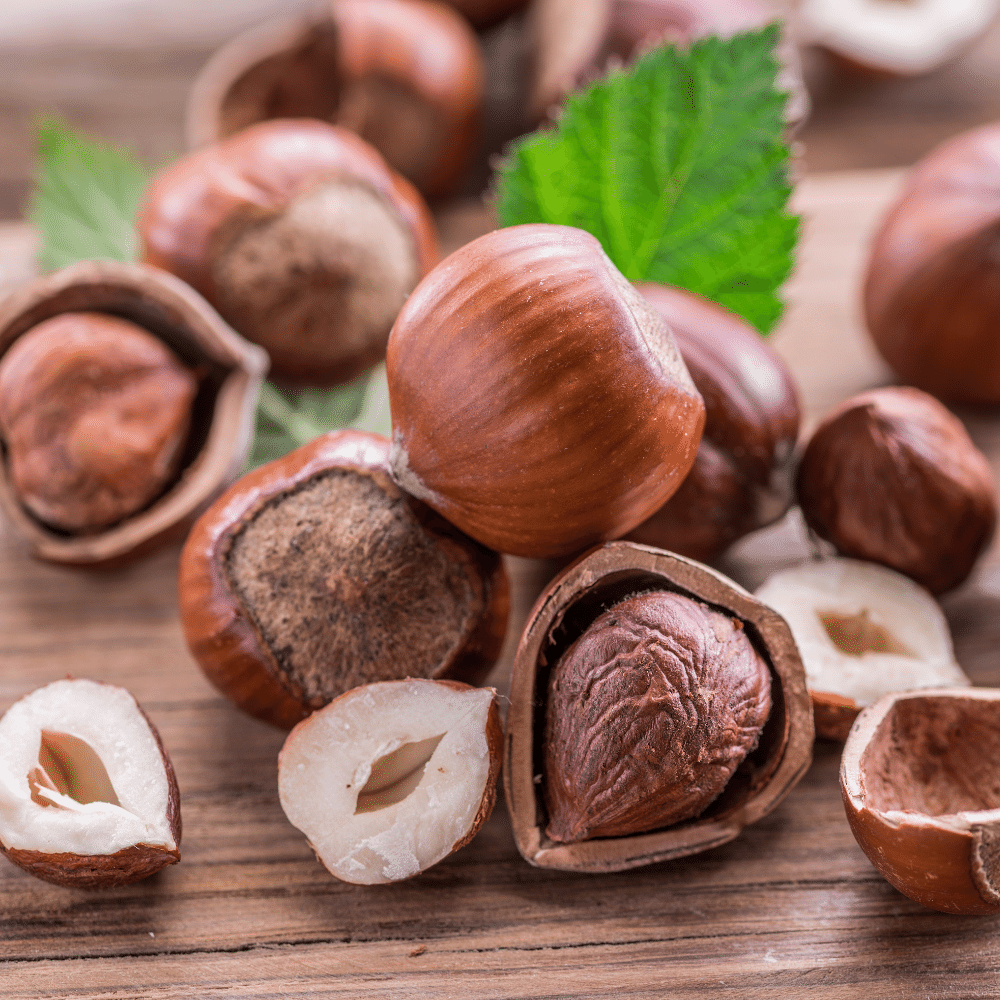
Hazelnuts are a delicious and nutritious nut that can be used in many different ways.
They have a sweet, nutty flavor with a creamy texture that makes them perfect for baking, snacking, or adding to salads and other dishes.
Hazelnuts are also an excellent source of healthy fats, vitamins, minerals, and antioxidants.
When substituting hazelnuts for almonds in recipes, it’s important to keep in mind that they have a slightly higher fat content than almonds do.
This means you may need to adjust the amount of oil or butter used accordingly.
Hazelnuts can be roasted or blanched before using them in recipes to bring out their flavor even more.
Try using hazelnuts as an alternative to almonds for your next baking project – you won’t regret it!
5 – Pistachios

Pistachios are a type of nut that have been enjoyed for centuries in the Middle East and Mediterranean regions.
They are known for their unique flavor, which is slightly sweet with a hint of saltiness.
Their bright green color makes them an attractive addition to any dish.
Pistachios can be used as an alternative to almonds in recipes such as pesto, salads, and baked goods.
The nuts add a crunchy texture and subtle sweetness that pairs well with savory flavors like garlic or herbs.
They also make a great snack when roasted and lightly salted.
For those looking for a healthier option than almonds, pistachios provide essential vitamins and minerals.
6 – Sunflower Seeds
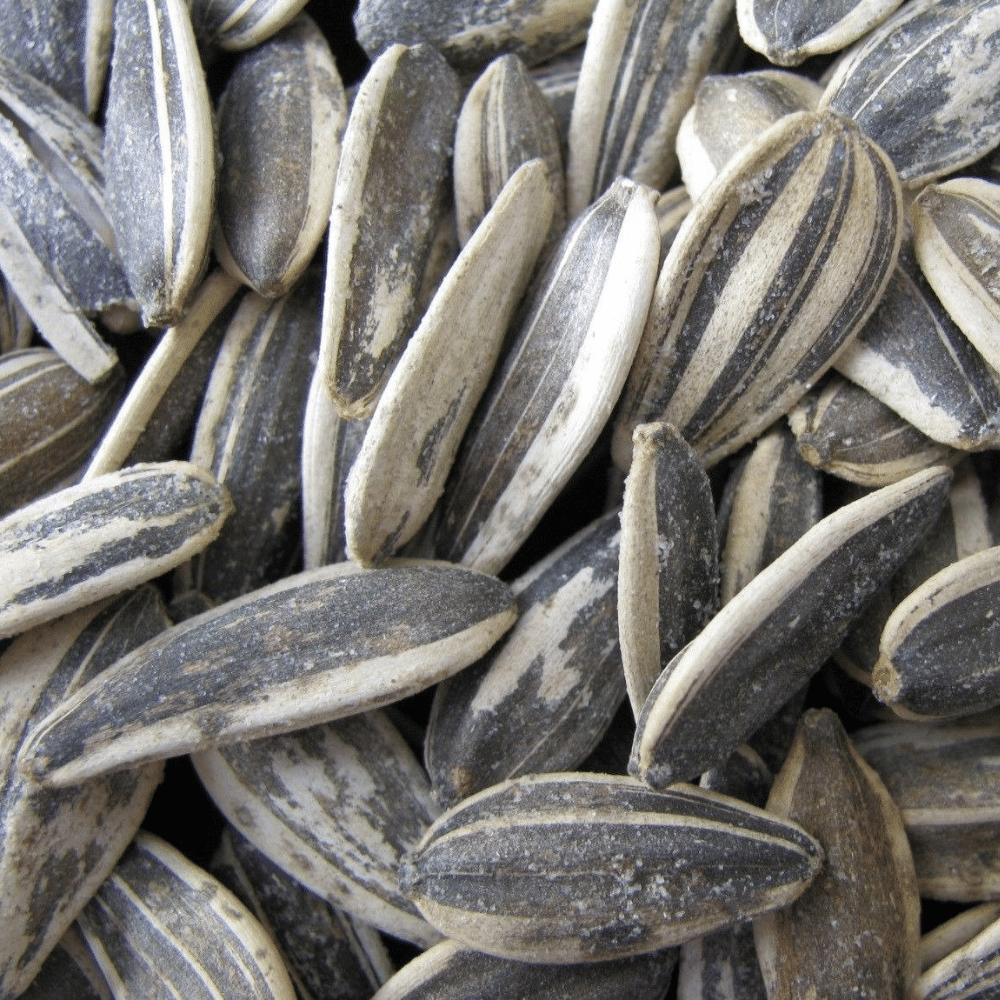
Sunflower seeds are a great alternative to almonds due to their similar nutritional profile and flavor.
Sunflower seeds are packed with essential vitamins and minerals such as magnesium, zinc, phosphorus, vitamin E, and selenium.
They have a mild nutty flavor that can be enjoyed in both sweet and savory dishes.
The seeds can be eaten raw or roasted for added crunchiness.
They also make an excellent addition to salads, stir-fries, granolas, trail mixes and more!
For baking purposes, sunflower seed butter is a delicious substitute for almond butter – try it on toast or in smoothies for a healthy snack.
Overall, sunflower seeds provide an easy way to add nutrition and flavor without having to resort to almonds!
7 – Peanuts

Peanuts are a great alternative to almonds when baking or cooking.
They have a mild, nutty flavor and can be used in both sweet and savory dishes.
Peanuts are also much more affordable than almonds, making them an economical choice for those on a budget.
When using peanuts in place of almonds, you may need to adjust the amount as they tend to be slightly larger in size.
For instance, if the recipe calls for one cup of chopped almonds, try using three-quarters of a cup of chopped peanuts instead.
Peanuts can be added to stir-fries and salads for crunchy texture or ground into sauces like satay for extra flavor.
They can also be roasted and used as a topping on ice cream or yogurt for an indulgent treat!
8 – Macadamia Nuts
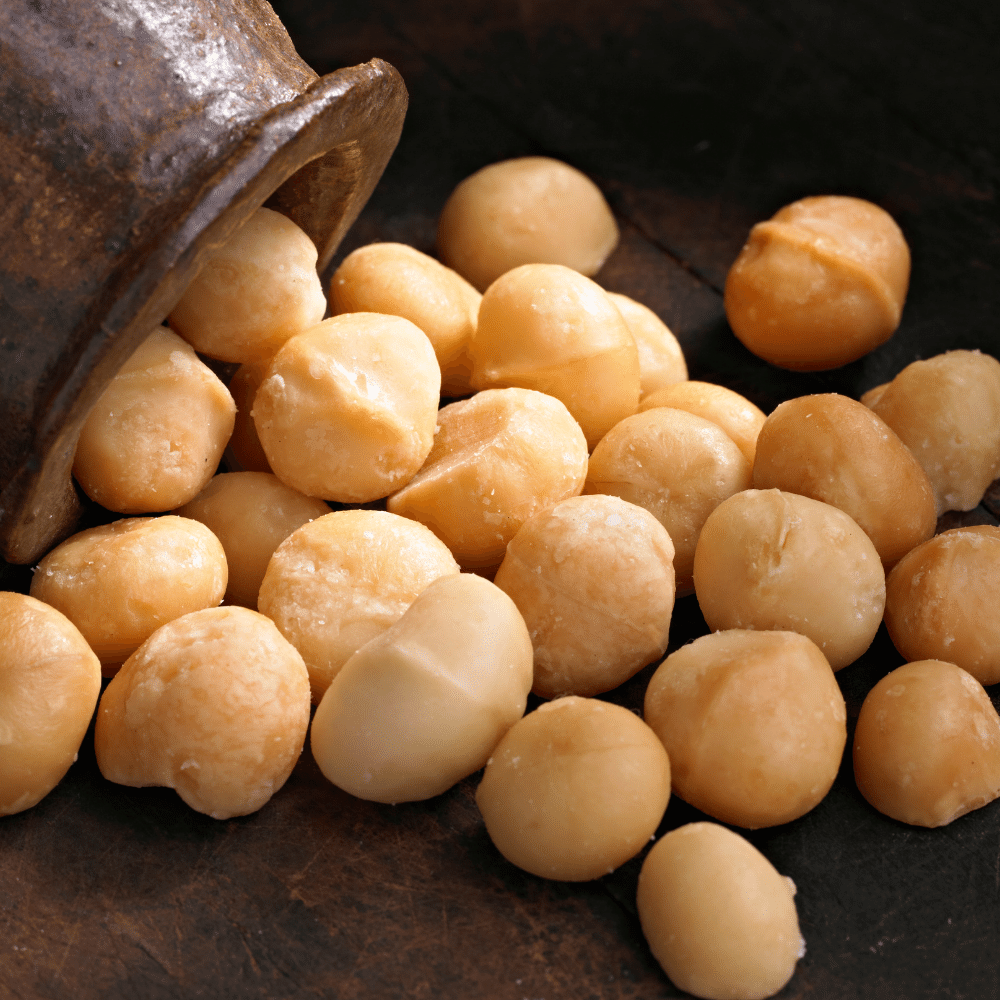
Macadamia nuts are a delicious and nutritious snack that can be enjoyed on their own or used to enhance recipes.
These creamy, buttery nuts have a sweet flavor and crunchy texture that makes them an ideal substitute for almonds.
They are packed with healthy fats, fiber, vitamins, minerals, and antioxidants – making them a great addition to any diet.
Their mild flavor works well in both sweet and savory dishes such as salads, baked goods, smoothies, or trail mixes.
Macadamia nuts can also be used as a topping for ice cream or yogurt parfaits or blended into nut butters for extra creaminess.
Whether you’re looking for something new to add to your meals or just want an alternative to almonds, macadamia nuts are sure to please!
9 – Sesame Seeds
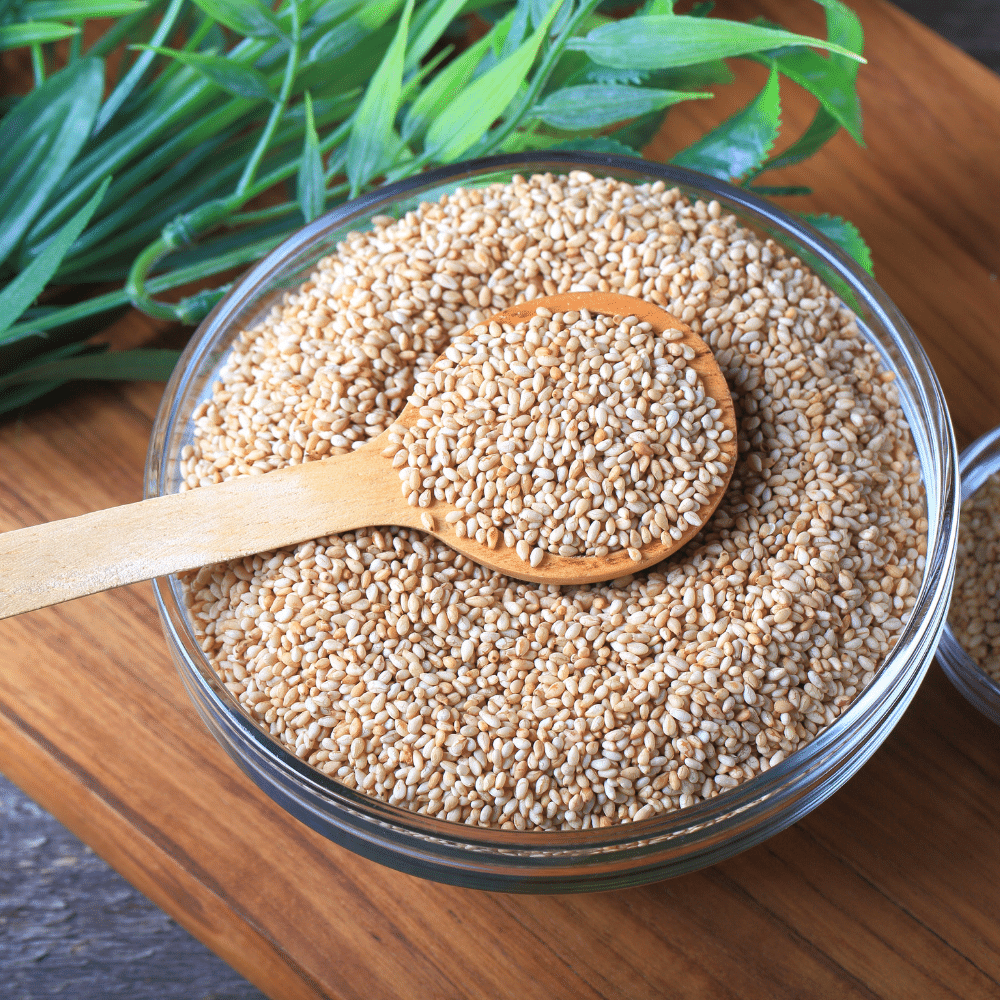
Sesame seeds are tiny, flat-shaped seeds with a nutty flavor and crunchy texture.
They have been used in cooking for centuries, and can be found in cuisines all over the world.
Sesame seeds are packed with nutrients like protein, fiber, iron, magnesium, zinc, and calcium.
When toasted or ground into a paste (known as tahini), they make an excellent substitute for almonds in baking recipes.
Their mild flavor makes them perfect for adding to salads or coating fish dishes.
They can also be sprinkled on top of breads or crackers for extra crunchiness and flavor.
Sesame seeds are an easy way to add nutrition and variety to your meals without having to use almonds!
10 – Coconut Flakes

Coconut flakes are a great alternative to almonds when looking for an interesting texture and flavor.
These sweet, crunchy flakes are made from dried coconut meat that has been shredded or flaked into small pieces.
Coconut flakes have a mild sweetness and nutty aroma that pairs well with both sweet and savory dishes.
They can be used as a topping for oatmeal, yogurt, salads, or desserts like ice cream sundaes.
You can also use them in baking recipes such as cookies, muffins, cakes, and granola bars.
Coconut flakes provide a unique flavor profile that is sure to liven up any dish!
Conclusion
In conclusion, almonds are a great source of healthy fats and can be used to add flavor, texture and crunch to many dishes.
However, if you don’t have almonds or someone is allergic to them, there are plenty of substitutes that can be used to provide the same nutritional benefits.
These substitutes include cashews, pecans, walnuts, hazelnuts, pistachios, sunflower seeds, peanuts, macadamia nuts, sesame seeds and coconut flakes.
By using these substitutes, you can keep cooking all your favorite recipes without missing out on any of the deliciousness.
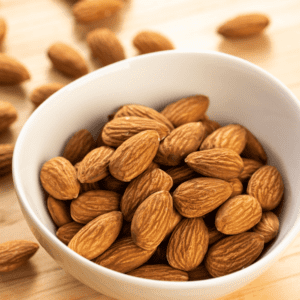
The 10 Best Substitutes For Almonds
Ingredients
- Cashews
- Pecans
- Walnuts
- Hazelnuts
- Pistachios
- Sunflower Seeds
- Peanuts
- Macadamia Nuts
- Sesame Seeds
- Coconut Flakes
Instructions
- Pick your favorite substitute from the list above.
- Follow cooking directions for your selected substitute with the proper ratio of ingredients.
Hi, I'm Benjamin. I love cooking, long walks, and my girlfriend! Here you’ll find simple and delicious recipes that you can make in 30 minutes or less.

